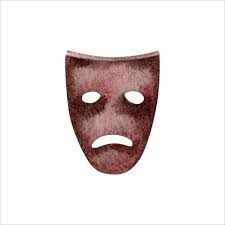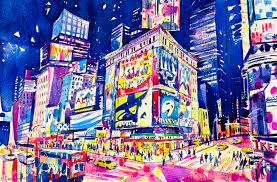by Hazel Anna Rogers for the Carl Kruse Arts Blog
In May of 2024, Jamie Lloyd’s production of Romeo & Juliet starring Tom Holland and Francesca Amewudah-Rivers sold its first batch of tickets in two hours. A friend of mine told me that he and his friends had all grouped together with their laptops open, ready to purchase the tickets the second they were released. Another friend of mine does this when Glastonbury announces its tickets are going on sale – she’s been doing it for years. It makes sense. Glastonbury is one of the largest music festivals in the world beckoning top musicians from every corner of the globe to its gates. It makes sense that it would be difficult to snag a ticket to such an event.
But when did buying theatre tickets become so f**king difficult?

I have never been a theatre afficionado. I love performing in good theatre, and I have seen some great plays (notably, I recently saw You, I am a child at the Courtyard Theatre, written by Dominic Conneely Hughes and directed by Tara Choudhary), but I have never warmed to the theatre scene in the way that I have to the filmmaking community. I dropped out of theatre at my Sixth Form College when I was 16 because I disliked the bitchiness and showiness of it. I fell completely out of the theatre buzz when I left drama school because I had never really been a part of it. To be in theatre, you have to live and breathe theatre – your friends are in theatre and they ask you to be in their plays, you grew up going to the theatre, you have your finger on the pulse of all the newest shows coming out. Theatre is a way of life. And I love it, I do. Being part of a well-written and well-directed play with a group of brilliant people is a thing like nothing else – it is community, it is strife, it is pain and glory and delirium. Theatre is a humble art, and some of the greatest plays I have seen have blown me away from their sheer humility; a person, or people, stood on a stage that looks like a stage and nothing else, with a table and some chairs, speaking words that I somehow believe because they make me believe them.
But theatre’s modesty and accessibility, which are its lifeblood, have been threatened for a while now. Of course, there will always be shows put on, some good, some bad, for a small price in small venues. It’s always been the way. I’ve seen a fair number of cheap concerts and theatre. It’s one of the joys of living in a city, a city that is known for its theatre and music scene. And, in the past, small theatre would become bigger theatre, and nameless actors would become names, and so on, and so forth. Many a household name, be it Ian McKellen, Cate Blanchett, Mark Rylance, Viola Davies – all started in the theatre. That was where they were discovered, from where they ran up the ladder to Hollywood and beyond.
This is where things have gone wrong. Names have become theatre. Big names, big, sparkling names written in bold font so large they almost obscure the titles of the plays themselves.
Celebrity casting in The West End is a relatively new phenomenon. An article on Cheap Theatre Tickets called The Drama of Celebrity Casting discusses this in-depth, with a particular emphasis on celebrities cast in musical theatre productions, which are notorious for their long runs. The issue, as discussed by the author of the article, is that celebrities who did not train or haven’t a lot of experience in theatre don’t have the physical or mental capacity to perform consecutive shows over a period of months, or even up to a year. When Amanda Holden appeared in Shrek the Musical in 2011, she withdrew from the production early and only performed in 75% of weekly shows while she was still performing, leading to widespread complaints and anger from fans who had spent up to £500 on tickets and accommodation for the sole purpose of seeing Holden. One of the earliest examples of failed celebrity casting, as purported by the article, was a 2001 production of My Fair Lady at The National Theatre starring Martine McCutcheon of Eastenders’ fame. Despite receiving favourable reviews for her performance, McCutcheon only ended up performing in 48% of her scheduled performances due to health issues.

In June 2024, The Stage reported that the average top-priced West End ticket cost £141.37 as of 2023. Cabaret had its most expensive ticket priced at £303.95, Romeo & Juliet tickets were going for up to £298.95, Player Kings (Ian Mckellen) had their highest ticket price at £228.80, and Stranger Things: First Shadow tickets were topping at £228.80. Chris Wiegand reported for The Guardian in June of 2024 that average theatre ticket prices had risen by 50% since 2023.
Much of the criticism of the high price margin on theatre tickets has been disputed by theatres, who suggest that “nearly a quarter [of tickets] below £30” for shows in the most reputable venues. But pricing doesn’t make a difference, in a certain sense, if the market for the tickets is driven by celebrities spearheading theatre shows, because all the cheap tickets will be snapped up regardless of the income of the persons purchasing them – we’re all looking for a good deal, aren’t we? This is because the heightened anticipation for a show, resulting from a big name being involved in it, inevitably leads to a surge of people wanting to see it, regardless of what the show is, regardless of whether this new audience is interested in theatre to start with. They are not going to see the show, they are going to see the celebrity. Because – well – how many times have performances of Romeo & Juliet been put on in London? It must be hundreds of thousands of times, surely. And how many of those shows sold all their tickets within 2 hours of releasing them? Most likely none before Jamie Lloyd’s production.
In the advent of streaming, and in the aftermath of Covid-19, theatre has suffered a massive blow. People are, generally, less willing to go out and spend money on shows and films when they could buy a monthly membership to a streaming site for less than £20 a month and watch whatever they desire in the comfort of their own homes. So bringing audiences back to the theatre is paramount to keeping the art alive, and celebrities are a surefire way to do that. But what will the celebrity casting model lead to? For once the celebrity is gone and normal programming resumes, what is left? Will the audiences drawn in by the prospect of seeing Tom Holland sweat and recite on stage still come to the theatre, or will we be back to square one? As Alice Saville reports for The Guardian, the show is not the point when it comes to A-List celebrities performing in the West End; when Sarah Jessica Parker performed in Plaza Suite, the streams of negative reviews of her performance meant nothing – the show was still sold out, with fans clogging up the entrances in the hopes of catching a glimpse of Parker.
I’m not against good actors performing in theatre, regardless of whether they’re celebrities or not. But when top Hollywood actors are chosen to take on lead roles in plays over newer actors, and the people at the top see the money coming in as a result, it’s difficult to see a way out.
It isn’t just tickets, though. As I discussed earlier, even making your own theatre seems to have an exorbitant price tag. Brian Ferguson, writing for The Scotsman in 2024, reported that many companies would have to fork out over £10,000 JUST to secure venues, along with staff and equipment, at The Edinburgh Fringe Festival 2024. Ferguson reports that The Fringe Society advises that performers book accommodation for the festival as early as November to ensure they have somewhere to stay during their performance runs, and that the cheapest accommodation, at the time of writing, was around £1200 for eight days in a studio flat. In a case study published on The Edinburgh Fringe website itself, they suggest that a one-performer show in a 30-capacity venue performing 23 shows at 15:00 would cost around £2000, though costs could run up to just under £3000. Note that shows occurring between 2-5:30pm have the highest competition for audiences. Another case study of a theatre performance in a 150-capacity venue comprising 12 performers and 10 non-performers (all based in Scotland) performing 23 shows could cost up to £27,500, with box office sales totalling around £13,800 based on a ticket price of £12. And, last time I heard, there were around 4,000 shows scheduled to appear at Fringe, so without a committed marketing plan/team, the possibility of performing in one of the more popular venues (such as Pleasance, Gilded Balloon, Assembly Hall, or Underbelly), and enough avid-theatre-goer-followers on Instagram to ensure that people even know that you’re doing a show at all. For example, my Instagram – a compilation of mediocre DJ videos of me on my synth, botched self-tapes, videos of me playing piano, and videos of me jumping over walls – is not conducive to beckoning in crowds of theatre devotees. It’s like I said earlier – to be in theatre, it seems you have to live and breathe theatre, from your childhood to your close friendships to your social media feed. It’s a good thing I don’t intend to make a theatre show anytime soon.
All of this kind of makes sense. With the promise of funding possibilities and exposure, it’s no wonder that The Edinburgh Fringe keeps growing year upon year – growing in audience numbers, growing in number of shows, and growing in expense. But it does also feel like a bit of a joke. The Edinburgh Fringe seems completely inaccessible to many, or even most, regardless of how good your show is. These are desperate times. The Independent reported that, despite Fringe’s ‘open to all’ sentiment, “only those in comfortable financial positions will be willing to take the risk”. There is criticism left, right, and centre about the Cambridge Footlights to Stardom pipeline and the prevalence of these privately educated performers putting on shows at the Fringe, with comedian Frankie Boyle damning the festival for its elitist, exclusionary nature (called many Fringe performers ‘parasites’). The Guardian has even reported on performers emailing critics and complimenting them on previous reviews they’d written in an effort to convince the critic to come and review their show.
Getting a show in The Edinburgh Fringe, or even visiting the festival itself, is both a logistical and an economical ordeal. Who knows what’ll come of it in the future, whether, as Frankie Boyle suggests, the festival might take on criticism and begin to ‘democratise’ access to performing at the festival to bring in a greater variety of shows made by people of different classes and races, or whether, as what seems to be happening, it will simply continue to get more and more expensive and elitist.
==============
The Carl Kruse Arts Blog Homepage is at https://carlkruse.net.
Contact: cartl AT carlkruse DOT com
Other posts by Hazel on this Carl Kruse Blog include Landscape Cinema, the New Art, and Channeling Animals.
Also find Carl Kruse on another blog here.